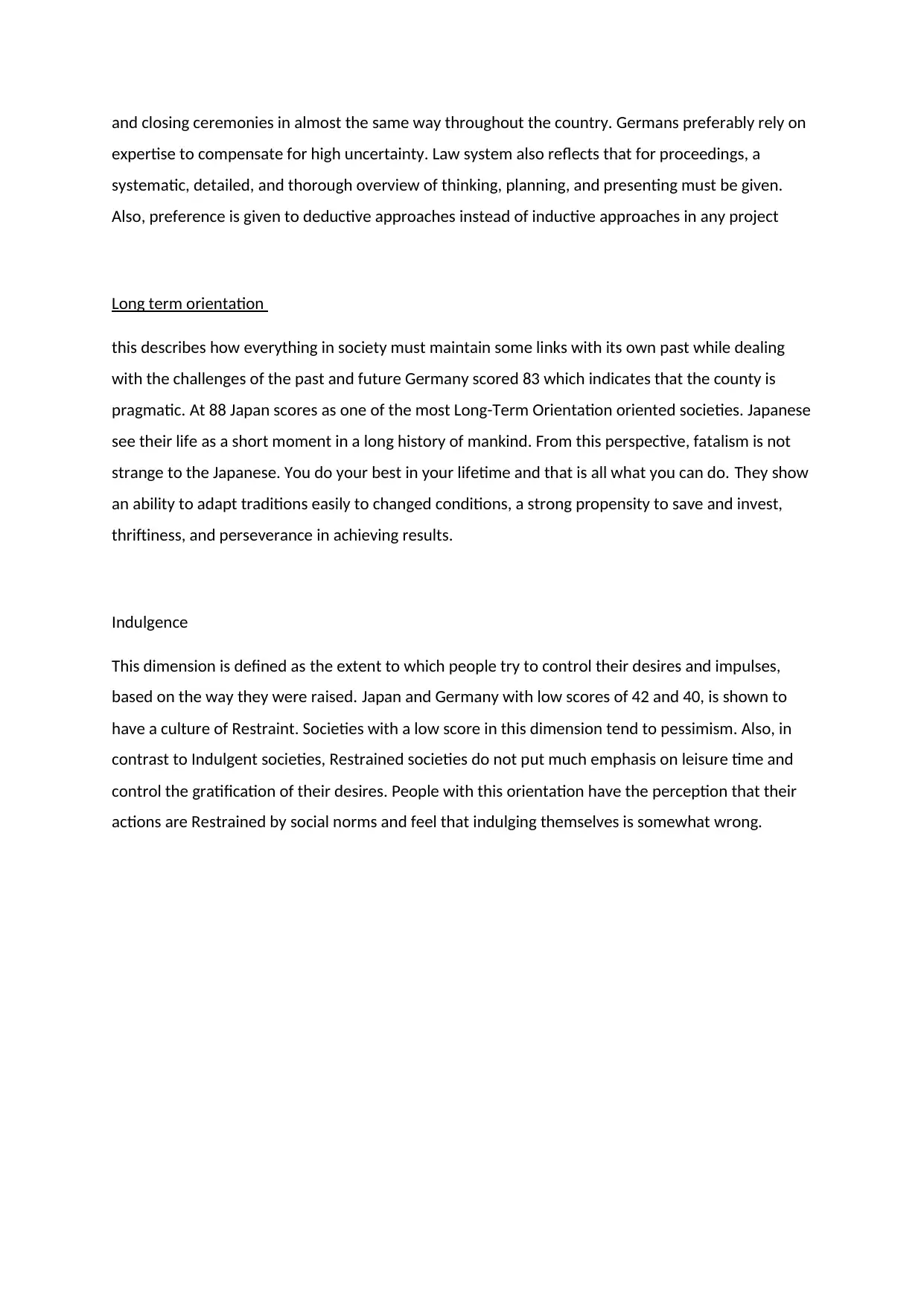Cross-Cultural Leadership Analysis: Power Distance in Japan & Germany
VerifiedAdded on 2020/12/07
|2
|691
|131
Report
AI Summary
This report provides a comparative analysis of power distance and other cultural dimensions, such as individualism, masculinity, uncertainty avoidance, long-term orientation, and indulgence, between Japan and Germany, based on Hofstede's cultural dimensions theory. The report explores how these cultural differences influence leadership styles, decision-making processes, and societal norms. It highlights the hierarchical structures and collectivistic tendencies in Japan, contrasting them with the more individualistic and egalitarian approach in Germany. The analysis delves into specific examples, such as how power distance affects communication, employee motivation, and business practices in both countries. The report also examines the implications of these cultural differences on various aspects of life, including work ethics, social interactions, and attitudes toward risk and change. The findings offer valuable insights into cross-cultural management and the importance of understanding cultural nuances in a globalized world.
1 out of 2







![[object Object]](/_next/static/media/star-bottom.7253800d.svg)